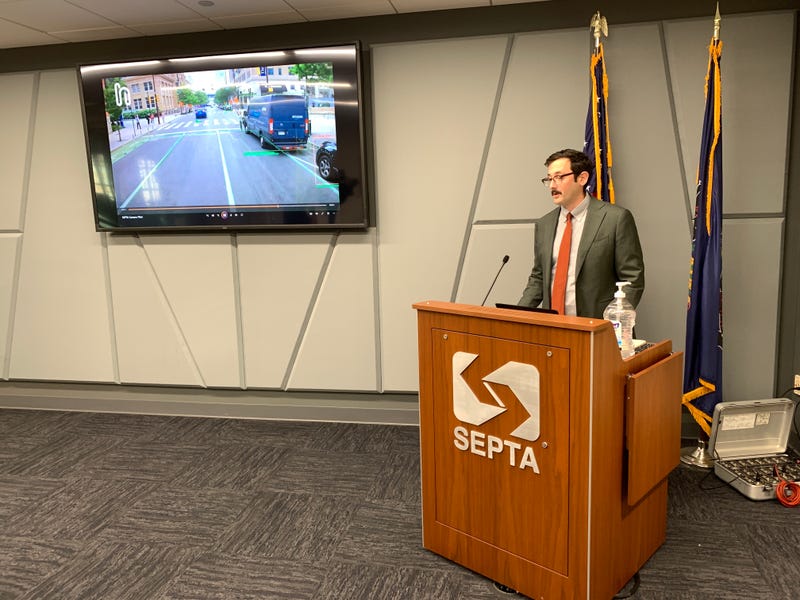
PHILADELPHIA (KYW Newsradio) — SEPTA recorded 36,392 vehicles stopped in bus-only lanes during a ten-week pilot program this year.
Between April and June, SEPTA deployed bus-mounted cameras that used artificial intelligence to detect vehicles illegally parked or stopped in bus lanes. The AI found an average of 4,000 violations each week along bus routes 21 and 42 on Walnut and Chestnut streets.
The cameras captured the license plates of cars and delivery trucks obstructing bus lanes and blocking bus stops, but no warnings or tickets were issued.
Matt Zapson SEPTA's planning project manager, says, for now, data from the AI pilot can be used to target enforcement by human officers.
"The information from this pilot has been incredibly useful for sharing with our partners like the PPA and the City of Philadelphia to increase in-person enforcement where it would have the greatest benefit," said Zapson at a news conference at SEPTA headquarters.
Occasional enforcement blitzes by police and the parking authority have helped to clear the lanes, but using the bus cameras for automated enforcement — similar to the speed cameras on Roosevelt Boulevard — would require state legislation.
Zapson says Chestnut Street between 16th and 18th streets had the highest number of violations. He said that while only 19% of vehicles were repeat offenders, they were responsible for 77% of the violations.
New York and San Francisco have used automated enforcement to ticket vehicles in bus lanes, and those cities saw bus speeds increase by as much as 40%, Zapson said.
“This study provides us with data that clearly illustrates the high frequency of these violations and how we can use cutting-edge technology to combat these problems,” said SEPTA General Manager Leslie Richards.
“Reducing these violations will improve safety for our customers, pedestrians and motorists, along with making our bus service more efficient and reliable.”
